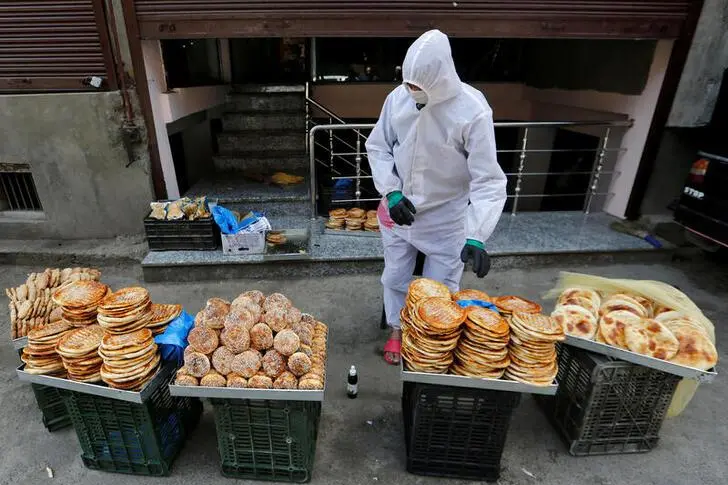PHOTO
(The author is a Reuters Breakingviews columnist. The opinions expressed are her own.)
MUMBAI - India’s massive free food programme highlights its poverty problem. New Delhi is handing out grains and pulses to over 800 million people through the end of November. It’s a frugal way for a cash-strapped government to defend families against pandemic-induced disruptions. Two-thirds of people in the fifth-largest economy are vulnerable to moderate income shocks, but the small tax base constrains redistribution options.
The country’s food reserves are brimming, so it was easy for Prime Minister Narendra Modi last week to extend an emergency response scheme in place since April. Individuals will receive a monthly supply of 5 kilograms of wheat or rice, plus other dry edibles. For some, that will come in addition to subsidised rations provided under an existing, long-running hunger eradication programme.
The scale of the effort reflects the vast numbers of Indians in desperate straits. The country’s poverty rate has nearly halved to 28% from 55% over a ten-year period to 2016, the United Nations estimates, but there are still many who are only slightly better off. In fact, the 800 million number might under-represent those now in need.
The 2011 census reported a population of 1.2 billion, a figure used to calculate how many should have the right to subsidised food. But the country may have since added over 150 million people. In addition, Covid-19 has pushed plenty of previously self-sufficient families to the edge. On top of 575 million poor, the vast majority of India’s 600-odd million so-called “new middle class” spend between $2 to $4 a day, economists Sandhya Krishnan and Neeraj Hatekar estimated in a 2017 paper.
Food only goes so far in providing for needs, however. Many wealthy economies have distributed cash but that’s tough for countries with a limited tax base. Only 4.8% of Indians file tax returns and half of those don’t produce any revenue for the exchequer. Jobs programmes can be expanded, though suffer from similar constraints. India’s credit rating is on the verge of junk and Standard & Poor’s already expects a fiscal deficit of 11% in the year to March. Modi’s rations reflects a fiscal poverty.
CONTEXT NEWS
- Prime Minister Narendra Modi on June 30 announced that the government would extend a scheme providing free food to more than 800 million people until the end of November.
- For the next five months, people will receive 5 kilograms of wheat or rice per month, along with 1 kilogram of whole chana per family, Modi said in a televised address.
- India has been running a significantly expanded food programme since April under the scheme as part of its pandemic response.
(The author is a Reuters Breakingviews columnist. The opinions expressed are her own.)
(Editing by Pete Sweeney, Jamie Lo and Sharon Lam) ((una.galani@thomsonreuters.com; Reuters Messaging: una.galani.thomsonreuters.com@reuters.net))





















